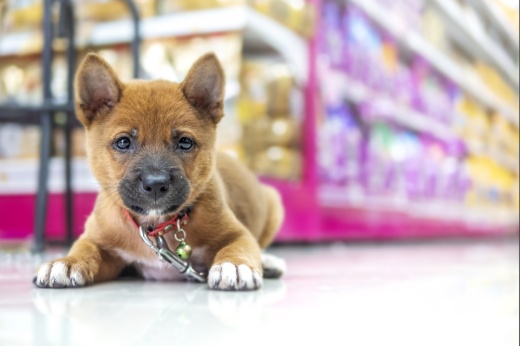The recommendation could regulate the commercial sale of pets within the city. The discussion stemmed from concerns raised by residents about animals sourced from commercial breeders and the future potential effects of not regulating the sale of animals.
During the meeting, board members examined three options regarding where commercial animal establishments could source their animals.
The first option would allow the sale of animals obtained from animal shelters, non-profit animal welfare groups, USDA exempted breeders or licensed breeders.
The second option would only allow the sale of animals from animal shelters and non-profit animal welfare groups, while the third option would permit the sale of animals from shelters, non-profit groups and licensed breeders.
Board members discussed the differences between USDA exempted breeders and breeder licenses provided by the Texas Department of Licensing and Regulation as they relate to the regulations breeders must follow and the health of the animals they sell.
Stacy Sutton Kerby, director of government relations for the Texas Humane Legislation Network, was in attendance at the meeting and explained the differences between the licenses.
The THLN is a statewide animal welfare lobby group that has been involved in local and state-level animal welfare ordinances since 1975.
Any breeder that possesses five or more breeding females and transports animals across state lines must have a USDA license, Kerby said, while a breeder with 11 or more breeding females who sells at least 20 animals a year must obtain a TDLR license.
In recent years, inspections of licensed facilities have declined, due in part to the ongoing coronavirus pandemic and other factors, Kerby said.
A June 2021 report from the USDA’s Office of Inspector General found that the Animal and Plant Health Inspection Service, which is responsible for administering the Animal Welfare Act and enforcing requirements for breeders, experienced data reliability issues and did not have a documented process for responding to complaints against breeding facilities.
The OIG recommended that APHIS address issues with its Animal Care Information System database, develop and implement policies and procedures to ensure a consistent response to complaints and provide inspectors with appropriate training, according to the report.
“The sad thing that happened with TDLR, which happened to all of us in all of our lives, is that the [COVID-19] pandemic made it impossible for them to go into facilities,” Kerby said. “What happened was a huge lag time for people to renew licenses or or apply for a license and the whole process slowed down.”
A staff report published by the Sunset Advisory Commission for the 87th Texas Legislature noted that the TDLR licensing program in Texas was difficult to enforce and the high thresholds of 11 breeding female animals enabled many breeders to avoid licensing and oversight.
During the meeting in New Braunfels, board members decided to table their discussion in order to conduct further research regarding the licensing exemptions before recommending an ordinance amendment to city council.
A similar ordinance was passed by the city of San Antonio in October 2020 that banned the retail sale of pets within city limits, according to city documents.
Local pet stores are required to work with local shelters and certified rescue organizations instead of large commercial breeding facilities. Independent breeders who sell directly to the public are not affected by the ordinance.
The New Braunfels advisory board is expected to meet in January to continue discussions and finalize a recommendation for the city.
“There's always this tension between who's ahead or who's behind, is culture ahead or is government behind,” Kerby said. “Communities just take the step forward where it's only humane sourcing and it really gives animals in the shelters and in the rescues a much better chance of getting adopted and not being euthanized or lingering in the shelter.”





